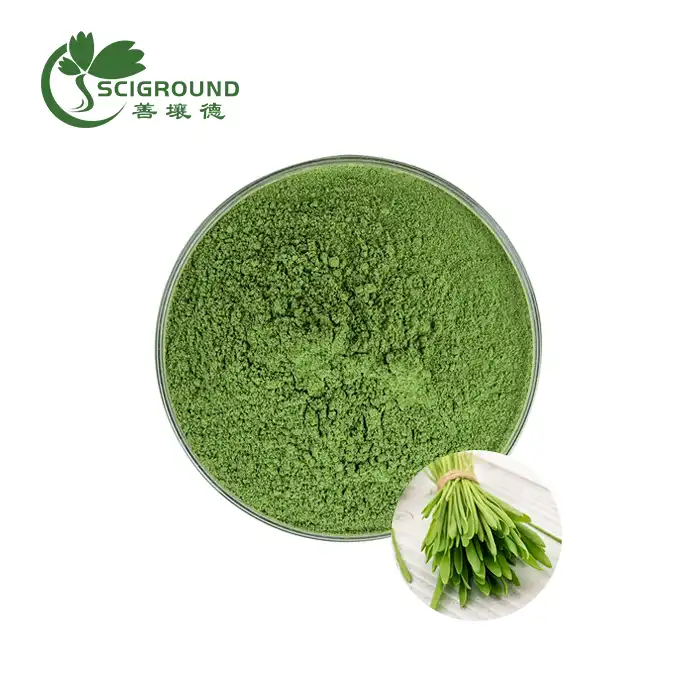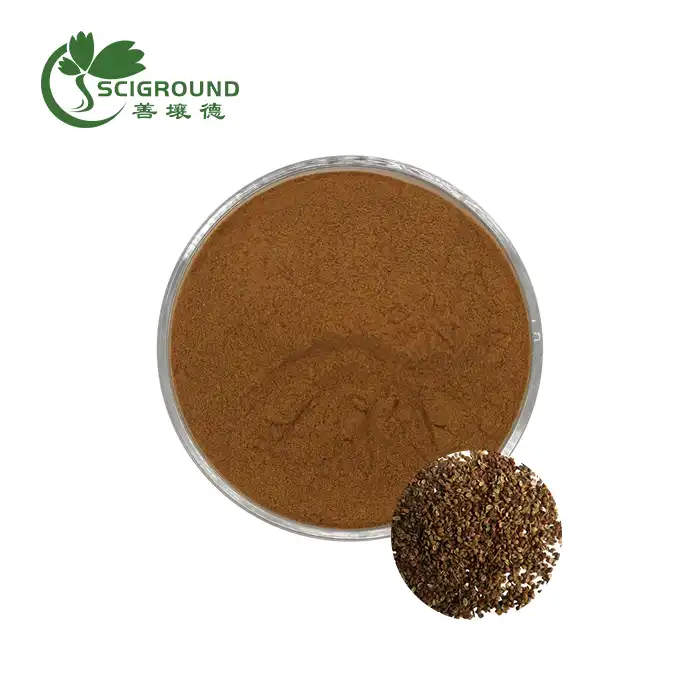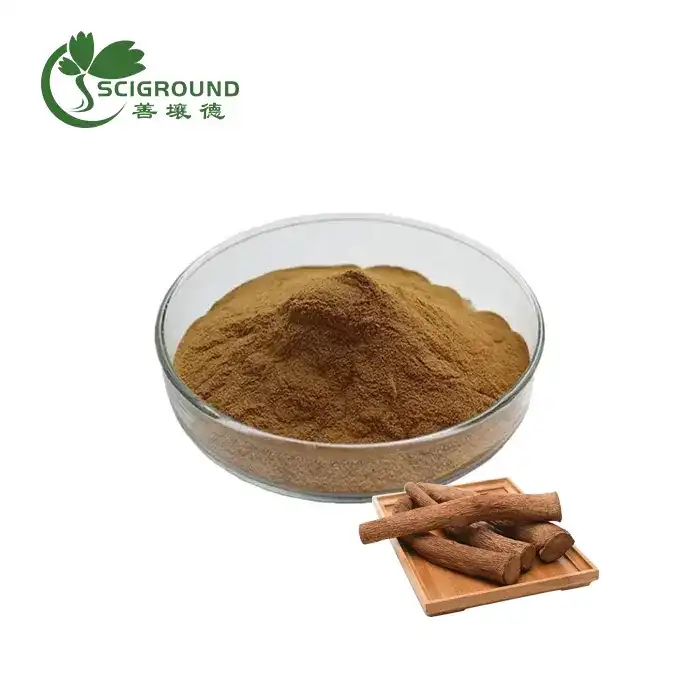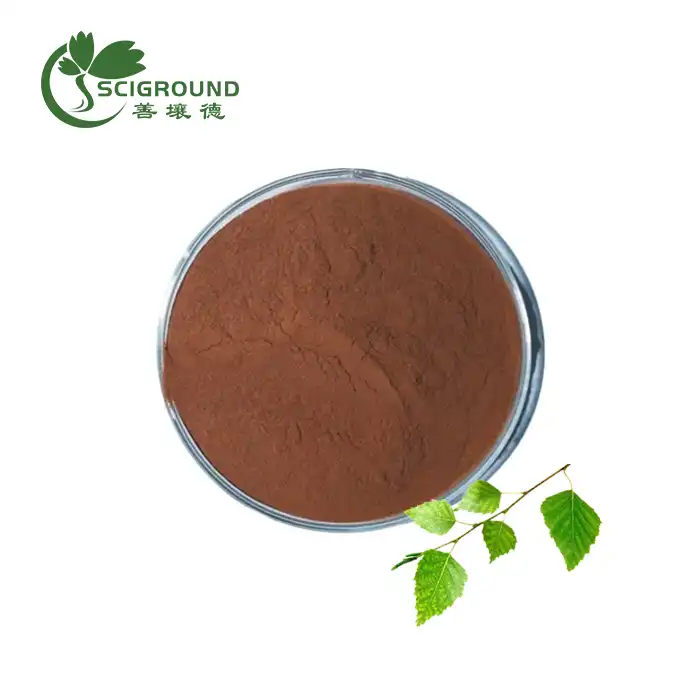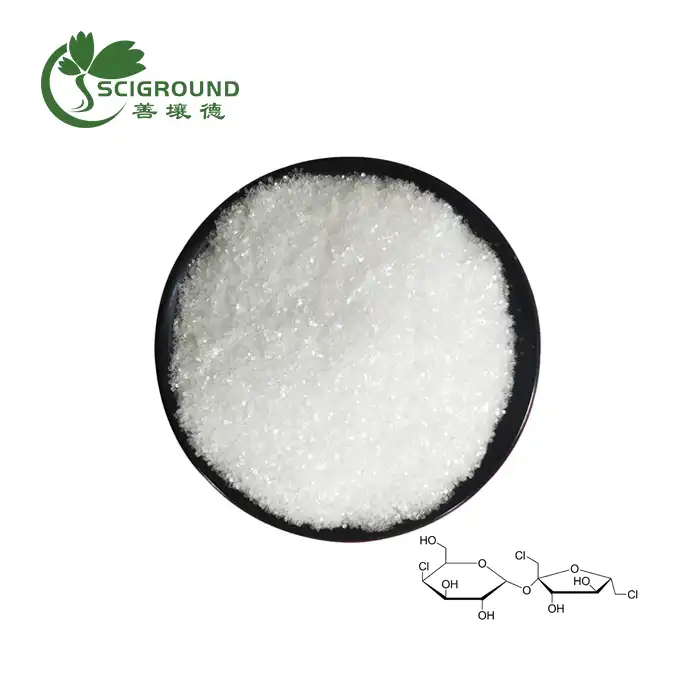Is horseradish powder hot?
Introduction
Welcome to the official blog of Scigroundbio, your one-stop destination for all things horseradish powder! In this blog post, we will address the burning question: is the product hot? We will delve into the properties and effects of this versatile spice, answer some common misconceptions, and provide you with valuable insights. So, if you're curious to know all about the heat of the product, read on!
The product is known for its pungent and spicy flavor, often raising questions about its heat level. When the root is ground up or crushed, allyl isothiocyanate (AITC), the main chemical substances leading to the heat, is released. The heat intensity can vary based on several factors, including freshness, preparation, and storage.
Freshness plays a crucial role in determining the heat of the product. It is at its peak intensity when freshly ground, gradually diminishing over time. Therefore, using freshly ground organic horseradish powder is recommended for a more pronounced heat sensation.
The preparation method also influences the heat level. Finely ground powder exposes more surface area, resulting in a stronger heat impact. Conversely, coarsely ground powder can offer a milder taste, catering to individual preferences.
Proper storage is essential to maintain the heat of the product. Oxidation, which can be brought on by sunlight, heat, and exposure to air, may decrease the spicy flavor. It is going to retain its heat longer if you preserve it in a container that is airtight in an area that is dark and cool.
People can use the aforementioned data to assist with making properly educated choices when bringing in the product to their meals. Being aware of the heat dynamics associated with the product becomes essential for producing delicious dishes, regardless of what you want for a more potent or softer flavor. Keep checking back as we reveal more amazing information related to the world of the product!
The Heat Factor
The heat factor in horseradish root powder is often underestimated. In reality, it carries a pungent and spicy flavor that can add a fiery kick to your culinary creations. Horseradish includes an element called allyl isothiocyanate (AITC), which is principally responsible for this elevated temperature. When the root is grated or ground, AITC is released, creating an intense heat sensation.
It is crucial that you keep in mind that a number of variables could impact the extent to which the heat is. First of all, a big factor to consider when choosing the heat level is how freshly the horseradish root is. Fresher roots tend to have a stronger and more potent flavor. Furthermore, various levels of heat can be created in accordance with the method of preparation, such as grating or grinding, which could impact the emitted amount of AITC.
Furthermore, people can differ significantly in their specific sensitivity to spicy feelings. Something that a single individual could think is moderate might be extremely hot to another. Horseradish seasoning powder ought to constantly be employed lightly at first and then expanded over time in accordance with your own personal preferences.
To get an appropriate flavor character when employing the product in methods of preparation, it is essential to balance its heat component with other elements that are present. It can be used to offer marinades, salads, dips, and sauces an additional zip. Spicy mustard, seafood cocktail sauce, and horseradish sauce for beef roasting are some of the classic preparations that make use of the product.
In the final analysis, allyl isothiocyanate is the explanation for why the product is certainly hot. A number of variables, which includes freshness, preparation technique, and your personal preferences, may influence the degree of strength it has. You can take pleasure in the spicy feeling of the product while enhancing the nutritional value of what you eat by understanding and taking advantage of its heat component.
Factors Affecting the Heat of Horseradish Powder
1.Freshness: The heat of the product is at its peak when it is fresh. As time passes, the intensity of the spice gradually diminishes. For a more powerful heat feeling, it is therefore suggested to use freshly ground the product.
2.Preparation: Horseradish powder's heat may additionally be modified depending on the way it is produced. A greater thermal effect occurs as a result of presenting more area of the surface in a coarser powder. Therefore, go for roughly ground up the product if you prefer a softer taste.
3.Storage: To maintain the temperature of dried horseradish powder hot, it needs to be put away properly. Its pungency could go down because of the oxidation that are brought on by sunlight, heat, and air exposure. It will continue to retain its heat a longer time if you preserve it in an airtight container in an area that is dark and cool.
All of these variables can be taken into account when employing the product in food preparation, as they play an important role in establishing the powder's temperature level. People can choose intelligently in order to obtain the taste profile that they're looking for by recognizing how storage, preparation, and freshness impact heat. Whether you're looking for a stronger kick of heat or a softer flavor, these variables offer helpful guidance on how to use the product throughout various dishes.
Contact Us
Still have questions about horseradish powder's heat or need more information on our products? Use the email address info@scigroundbio.com to contact us. We will do our best for assistance to you!
Conclusion
Alkyl isothiocyanate is what utilizes the horseradish powder so irresistibly spicy versions. A number of variables, including freshness, preparation, and storage, could contribute to the degree of heat it is. You are able to control the boiling point of the product and add exactly the correct quantity of heat to the dishes you make by being aware of these elements. Experiment, enjoy, and savor the fiery flavor of the product!
References:
Related Industry Knowledge
- What is Andrographis powder good for?
- What You Need to Know about American Ginseng
- Should I take fisetin in the morning or at night?
- How do you make pepper powder?
- What is the most effective form of quercetin?
- Does DHM stop you from getting drunk?
- Does Vitamin B12 Give You Energy
- Tongkat Ali Extract Powder: Everything You Need to Know
- Understanding L-Valine Powder for Muscle Growth
- What is kudzu powder good for?
